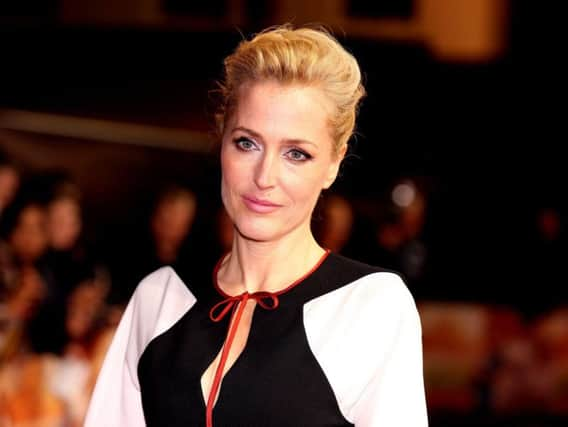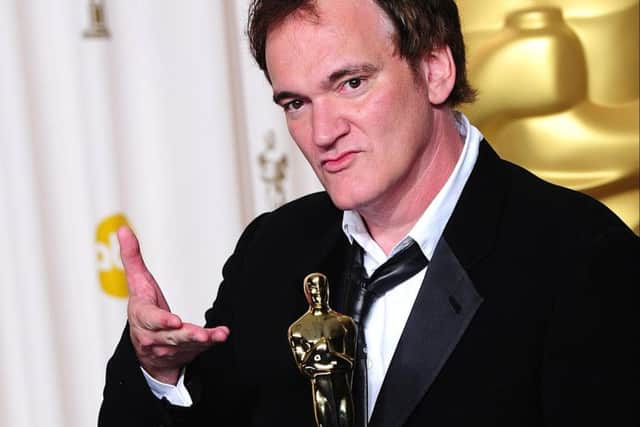Why we shouldn't try and purge controversy from culture whether it's Tarantino or Thatcher - Anthony Clavane


Readers will not be surprised to learn that Margaret Thatcher was never my cup of tea.
The Iron Lady’s brutal policies, in particular her assault on northern industries and the gutting of the welfare state, forever marks the 1980s, in my mind, as a low, dishonest decade.
Advertisement
Hide AdAdvertisement
Hide AdHer uncaring regime was noted for its greed, selfishness and neglect of the weak. I despised her appalling attitudes towards immigration, homosexuality – her government introduced a law banning its “promotion” in schools – and feminism, which she regarded as “poison”.


But I am intrigued by the news that Gillian Anderson will portray her in the fourth series of The Crown. Thatcher had, apparently, a strained relationship with the Queen and it will be fascinating to watch their tense encounters in the highly-praised Netflix show.
Ironically, given she was rightly criticised for restricting freedom of speech, some overzealous lefty-liberals now want to deprive her of the “oxygen of publicity”.
That famous phrase was accompanied by a broadcasting ban which prevented both republicans and loyalists talking freely on the airwaves; actors’ voices were dubbed over the speeches of key players in the Northern Irish conflict.
Advertisement
Hide AdAdvertisement
Hide AdIt was a surreal experience, brilliantly satirised in a Steve Coogan sketch featuring a Sinn Féin spokesman sucking in helium before an interview in order “to subtract credibility from his statements”.
Anderson, herself, is no great fan of Thatcher’s. In a newspaper interview last weekend, the 51-year-old actress called Britain’s first female prime minister a “complicated and controversial woman” who would not be forgiven for some of her actions and statements. At the same time, she found her “absolutely fascinating” and confessed to “falling in love” with the iconic politician.
Cue the inevitable meltdown by overzealous lefty-liberals. “I always thought Anderson was a feminist,” one posted. “I don’t think she knows what Thatcher stood for. I don’t think she gets it at all.” Thatcher was “a monster and a war criminal” shrieked another. I can understand social media critics calling out the questionable views of despised figures. I get why powerful celebrities who say offensive things are reprimanded. I sympathise with demands for racist tweets to be deleted.
But I cannot for the life of me understand attempts to police creativity, to purge TV shows and films of all controversy, to draw draconian lines around what ought to be acceptable in our culture. As the edgy and pioneering American comedian Sarah Silverman argued: “I think it’s really scary and it’s a very odd thing that it’s invaded the left primarily and the right will mimic it. If you’re not on board, if you say the wrong thing, if you had a tweet once, everyone is, like, throwing the first stone. It’s so odd. It’s a perversion.”
Advertisement
Hide AdAdvertisement
Hide AdThe “it” Silverman is referring to is something called “cancel culture”. I actually support the notion of political correctness, which is just another way of appreciating good manners, of being polite and caring about the feelings of others. I draw the line, however, at boycotting a public figure who has shared an unpopular opinion or has behaved in a way that is judged to be problematic.
By all means criticise Quentin Tarantino for his trademark cartoonish violence, his treatment of women on screen and the fact that Harvey Weinstein’s companies distributed most of his films. But don’t deprive the director of the oxygen of publicity. Don’t boycott his latest movie, Once Upon a Time in Hollywood. Don’t cancel him.
A Guardian piece entitled “Why It’s Time To Cancel Quentin Tarantino” was not just scarily Orwellian but an affront to the concept of storytelling. From the campfire to the digital age, storytellers have written about baddies as well as goodies.
The devil usually has the best tunes, as fans of James Bond, Sherlock and Dr Who will testify. The most interesting characters are often those who succumb to evil, like Scarface, Macbeth and Michael Corleone in The Godfather.
Advertisement
Hide AdAdvertisement
Hide AdSo don’t blacklist The Crown just because you think Thatcher “broke bad”. And don’t add Anderson’s name to that ever-expanding rogue’s gallery of celebrities – which includes Tarantino, Taylor Swift and Kanye West – deemed by the woke police to be ideologically unsound.